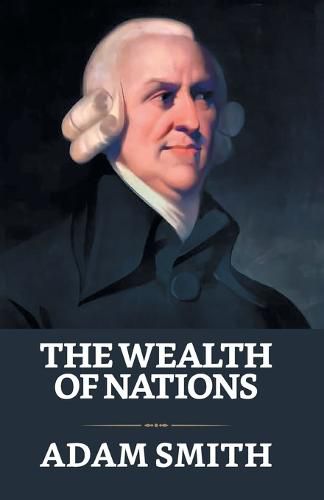Readings Newsletter
Become a Readings Member to make your shopping experience even easier.
Sign in or sign up for free!
You’re not far away from qualifying for FREE standard shipping within Australia
You’ve qualified for FREE standard shipping within Australia
The cart is loading…






This title is printed to order. This book may have been self-published. If so, we cannot guarantee the quality of the content. In the main most books will have gone through the editing process however some may not. We therefore suggest that you be aware of this before ordering this book. If in doubt check either the author or publisher’s details as we are unable to accept any returns unless they are faulty. Please contact us if you have any questions.
It is central thesis of Smith's "The Wealth of Nations" is that our individual need to fulfill self-interest results in societal benefit, in what is known as his "invisible hand". Adam Smith wrote The Wealth of Nations in 1776 to criticize mercantilism, which was the primary economic system at the time. Under mercantilism, it was believed that wealth was finite. Prosperity could be increased by keeping gold and precious metals and tariffing goods from other countries. Smith laid the foundations of classical free market economic theory. The Wealth of Nations was a precursor to the modern academic discipline of economics. In this and other works, he expounded upon how rational self-interest and competition can lead to economic prosperity.
$9.00 standard shipping within Australia
FREE standard shipping within Australia for orders over $100.00
Express & International shipping calculated at checkout
This title is printed to order. This book may have been self-published. If so, we cannot guarantee the quality of the content. In the main most books will have gone through the editing process however some may not. We therefore suggest that you be aware of this before ordering this book. If in doubt check either the author or publisher’s details as we are unable to accept any returns unless they are faulty. Please contact us if you have any questions.
It is central thesis of Smith's "The Wealth of Nations" is that our individual need to fulfill self-interest results in societal benefit, in what is known as his "invisible hand". Adam Smith wrote The Wealth of Nations in 1776 to criticize mercantilism, which was the primary economic system at the time. Under mercantilism, it was believed that wealth was finite. Prosperity could be increased by keeping gold and precious metals and tariffing goods from other countries. Smith laid the foundations of classical free market economic theory. The Wealth of Nations was a precursor to the modern academic discipline of economics. In this and other works, he expounded upon how rational self-interest and competition can lead to economic prosperity.